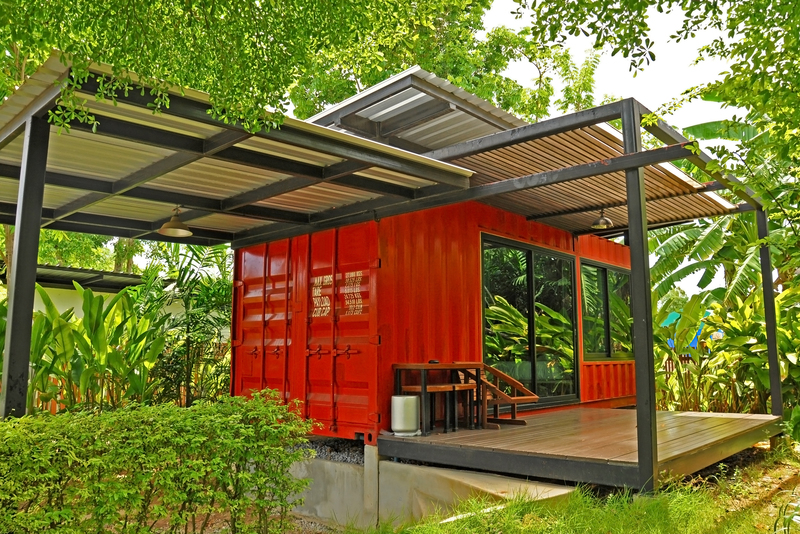Innovative Recycling Methods for Restaurant Waste
Restaurants, as hubs of culinary delight and social interaction, undoubtedly generate a considerable amount of waste. The food service industry is constantly seeking innovative recycling methods for restaurant waste to enhance sustainability and environmental responsibility. Let's dive into some recent advancements and popular practices that can transform how eateries manage their waste.
The Importance of Restaurant Waste Management
Effective waste management in restaurants is more than just an ecological concern; it's a pathway to more efficient operations, savings, and improved brand reputation. Managing waste efficiently can also help in reducing the carbon footprint of the food service industry.
Understanding the Types of Waste
Before delving into the innovative solutions, it's crucial to understand the types of waste typically generated in a restaurant setting:
- Food Waste: This includes organic waste from expired or spoiled food, as well as leftovers.
- Packaging Waste: Excessive packaging materials such as plastics, paper, and cardboard.
- Cooking Waste: Used oils and fats, kitchen scraps, and overproduction.
- Other Waste: Items like glass bottles, cans, and metal waste.

Revolutionizing Restaurant Waste Management
The industry is witnessing a transformation through technology and creative solutions designed to minimize waste. Below are some innovative recycling methods effectively utilized by modern restaurants.
1. Composting for Soil Regeneration
Composting remains one of the most sustainable methods for handling organic waste. By converting food scraps and organic leftovers into nutrient-rich compost, restaurants contribute to soil regeneration, promoting agricultural sustainability.
- On-site Composting: More establishments are adopting composting processes within their premises, reducing waste transportation and disposal costs.
- Compost Partnerships: Collaborations with local farms and community gardens boost local agriculture and reduce carbon footprints.
2. Biogas Conversion
Biogas technology offers a dynamic way of tackling organic waste by converting it into energy. This innovative recycling method helps to:
- Produce renewable energy, reducing reliance on non-renewable resources.
- Lower greenhouse gas emissions by capturing methane that would otherwise enter the atmosphere.
- Enable restaurants to potentially power their operations or contribute to community energy grids.
3. Upcycling and Reusing
Creative upcycling and reuse initiatives provide a fresh take on waste management. Here's how establishments are innovatively repurposing materials:
- Food Repurposing: Transforming leftover or less-perfect food items into new creations, minimizing wastage.
- Material Innovations: Converting glass bottles into kitchenware or decorative items.
- Furniture and Decor: Using reclaimed wood and used materials for interior design.
4. Advanced Waste Separation Technologies
Technological advancements in waste separation and treatment are revolutionizing recycling methods. Key technologies include:
- Smart Bins: Equipped with sensors, these bins aid in efficient sorting by detecting materials and even tracking waste patterns.
- Automated Waste Sorting Machines: These machines streamline the waste management process, efficiently segregating recyclables from non-recyclables.

Benefits of Innovative Waste Recycling
Implementing innovative recycling methods for restaurant waste goes beyond just waste reduction. It brings numerous advantages that can substantially benefit restaurants:
- Cost Savings: Many of these methods reduce the cost of waste disposal and create potential avenues for revenue generation.
- Improved Brand Image: Sustainable practices elevate a restaurant's reputation, inspiring customer trust and loyalty.
- Environmental Stewardship: Contributing to environmental conservation reflects a commitment to broader ecological responsibilities.
Implementing a Sustainable Culture
Building a sustainable culture within the dining industry demands education, awareness, and commitment. Therefore, it is essential for restaurants to:
- Welcome partnerships with sustainability experts and organizations.
- Educate staff and customers on the importance of recycling and sustainability.
- Create in-house policies focused on maximizing resource efficiency and minimizing waste.
Challenges and Future Prospects
Despite the promising nature of recycling innovations, restaurants may still face several challenges. These can include:
- The initial cost of integrating advanced recycling systems.
- Limited awareness or training on new technologies and methods.
- Regulatory hurdles and inconsistent recycling standards across regions.
The future of restaurant waste management looks bright, with continuous advancements in technology and a growing cultural shift towards sustainability. As more establishments adopt these innovative recycling methods, the restaurant industry could soon become a benchmark for zero-waste operations.
In conclusion, transforming waste lies not just in technology but also in a dedication to sustainable principles. Restaurants embracing innovative recycling methods are paving the way towards a more eco-friendly and responsible future.